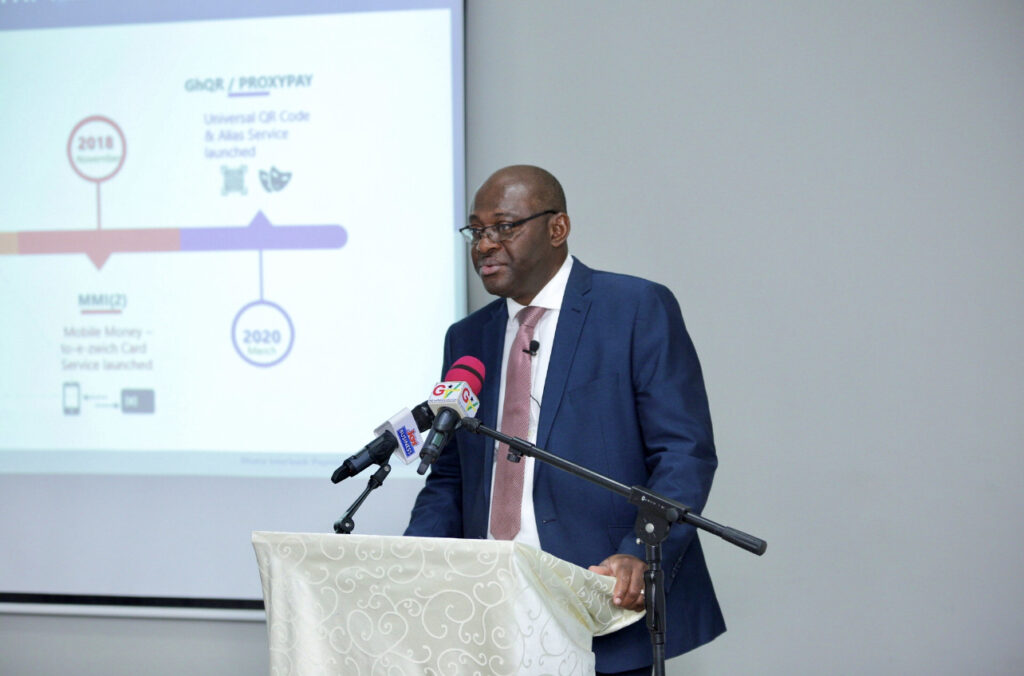GhIPSS Instant Pay (GIP) has been ranked the most advanced on the African continent per the financial inclusivity criteria outlined in the the State of Instant and Inclusive Payment Systems (SIIPS) report for 2022 by AfricaNenda.
In 2021, the SIIPS Report adjudged the Ghana the only country to have reached maturity stage in terms of financial inclusion – based on the instant pay and interoperability platforms at Ghana Interbank Payments and Settlements Systems (GhIPSS), which underpins a financial inclusion triangle.
Per the AfricaNenda criteria, instant pay solutions should not only be accessible and affordable, but also have a wide range of use cases that ensures that people everywhere, which all kinds of devices and of all kind social statuses in the particular country are using it.
In the case of Ghana, the interoperability platform integrates banks, telcos, fintechs, and even state institutions, such that users can make payments with both feature and smartphone devices to wallets across networks, between digital wallets and bank accounts and also to merchants and state institutions. Payments can also be made via GHQR for free as well as via physical PoS devices.
AfricaNenda is yet to launch the 2022 report, in which Ghana is already making a strong showing as having a “progressed inclusivity as it not only meets the fundamental IIPS criteria but also provides inclusive functionality that supports the most widely used channels and essential use-cases, including P2P and P2B transactions.”
Representatives of various African central banks and payments switches, led by a team from AfricaNenda are therefore on a three-day tour to Accra to learn at first hand how GhIPSS and its partners are able to drive that level of inclusivity in instant payments via multiple channels across the country.
The visitors include central bank representatives from Burundi, Democratic Republic of Congo, Rwanda, Sierra Leone, and reps of switches such as Rwanda Rswitch, Zambia Electronic Clearing House Limited (ZECHL) and Central Africa’s GIMAC.
As part of the tour, GhIPSS held a workshop for the team on Tuesday on, following which the team will pay working visits to the Bank of Ghana and to some of the leading Fintechs such as Hubtel and IT Consortium to learn how they are making instant payments easily accessible and usable for all.
The tour will also afford participants very valuable insights into GhIPSS’s scheme rules, business model and use cases, as will also serve as an opportunity for participating countries to establish relevant networks and contacts to foster further sharing of expertise.

General Manager for Technology and Operations as GhIPSS, Kwadwo Ntim told the team that Ghana’s broad interoperability ecosystem includes 55 financial institutions working together to facilitate the movement of funds across different payment platforms in Ghana.
He said as of December 2022, GhIPSS had processed a monthly average of 17.9 million Instant Payment transactions, and the figures are poised to even grow bigger once the stakeholders rollout their marketing strategies to drive uptake of channels like the GHQR among others.
Indeed, a complete case study by AfricaNenda showed that with further improvements to its model, GhIPSS can move towards mature inclusivity in the coming years.

Deputy CEO of AfricaNenda, Sabine Mensah, who led the team, noted that is still well on the path to maturity, adding that since launching the 2021 report, about four other Africa countries have learnt valuable lessons from Ghana and are also on the path of progress.
She noted that compiling information on the progress made so far on the continent in the area of instant payments and financial inclusivity is a herculean one, in that the stakeholder institutions hardly have online portals where they share such information.
“We have therefore resorted to getting some information directly from these institution so we create a comprehensive report that provide learnings for all countries as we march toward integrating platforms across borders to driver intra-Africa trade,” she said.
Meanwhile, in a statement, the CEO of AfricaNenda, Dr. Robert Ochola, said “We believe that Ghana’s experience can offer critical lessons and good practices for regulators and policymakers in other countries, which is aligned with the organization’s agenda to accelerate knowledge sharing and enhance the capacity of African institutions.”
GhIPSS CEO Archie Hesse also said “GhIPSS is excited about this partnership as it affords us the opportunity to share the experiences and lessons learnt on our journey to achieving inclusive payments. I am optimistic this knowledge sharing experience will provide the needed guidance to the various participating countries as they embark on the development and deployment of their instant payment solutions.”
Through this peer-learning event, AfricaNenda hopes to support the growth of Instant and Inclusive Payment Systems in Africa, which are critical to achieving universal financial inclusion by 2030.
Comments